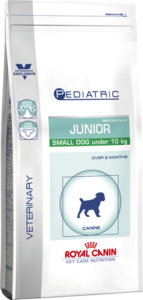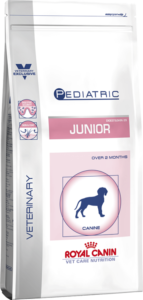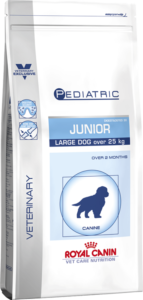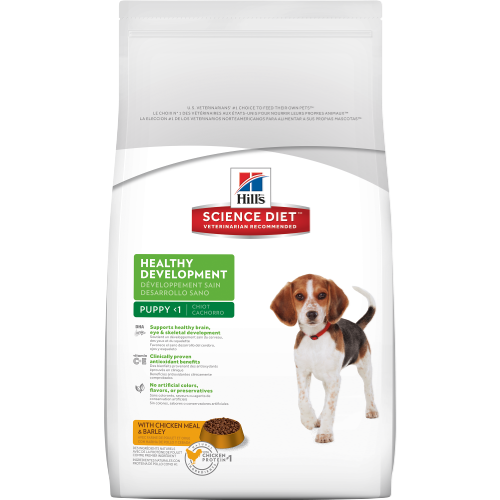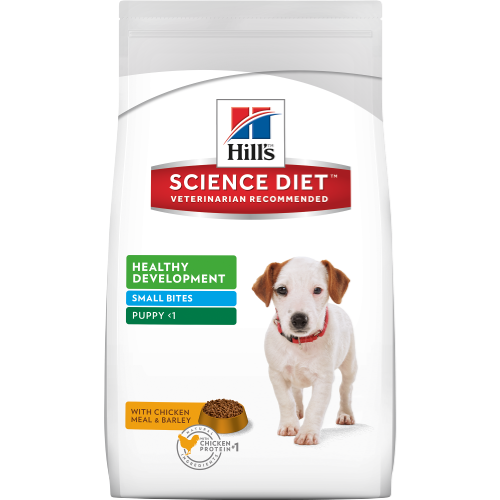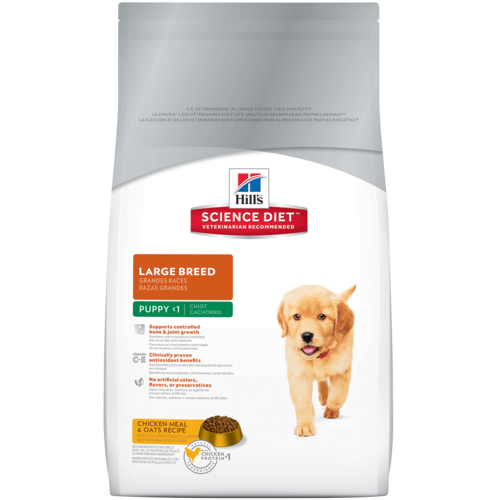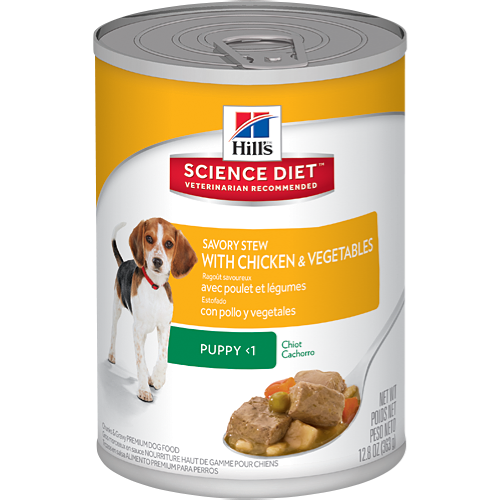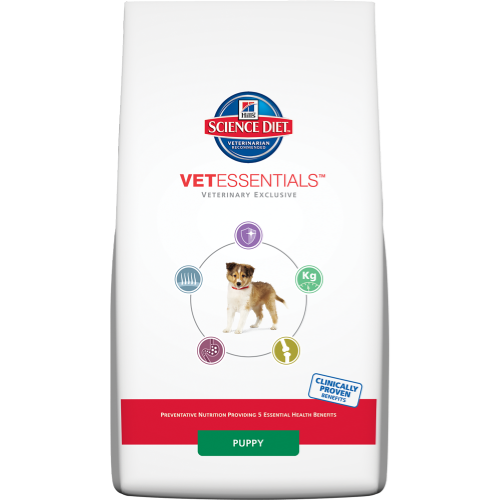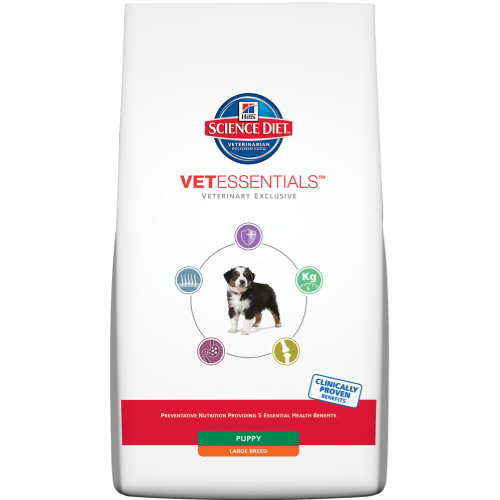Puppy Food
Every nutrient in your pet’s food should have a specific purpose. From proteins, lipids and carbohydrates to vitamins and minerals, all should be properly balanced, because ‘too much’ can be just as detrimental to your puppy as ‘too little’. If these nutrients are fed in the wrong proportions, nutritional deficiencies or excesses could lead to long-term damage to the puppy’s health and wellbeing.
A quality formula designed for your puppy’s growth phase should be specifically suited to the type of puppy – his or her size, breed, age and sensitivities or particular features of their breed. When a puppy reaches adulthood, a “maintenance” diet should then be selected that precisely meets the adult dog’s requirements.
A puppy should be fed to four meals a day in the weeks following weaning. The number of meals will vary depending on age, starting with four meals a day, before transitioning to three, and then to two at the mid-growth stage. Always give your puppy food in the same bowl, in the same place to teach them good eating habits.
Ideally, food quantity should be based on the growth curve of your specific breed of dog. Overfeeding can cause excess weight gain, obesity in adulthood and joint and bone issues in large breed puppies. Be sure to review the feeding guidelines recommended on the packaging of your puppy food formula and measure each serving accordingly.
It’s also very important to transition your puppy slowly when you change your puppy’s diet. Ask the person you obtained the puppy from about their feeding methods (number of meals per day, brand/type of food, etc.), because switching to a new food and routine abruptly can cause digestive upset.
Sourced from Royal Canin.com
Hills Science Diet Products
Royal Canin Products
